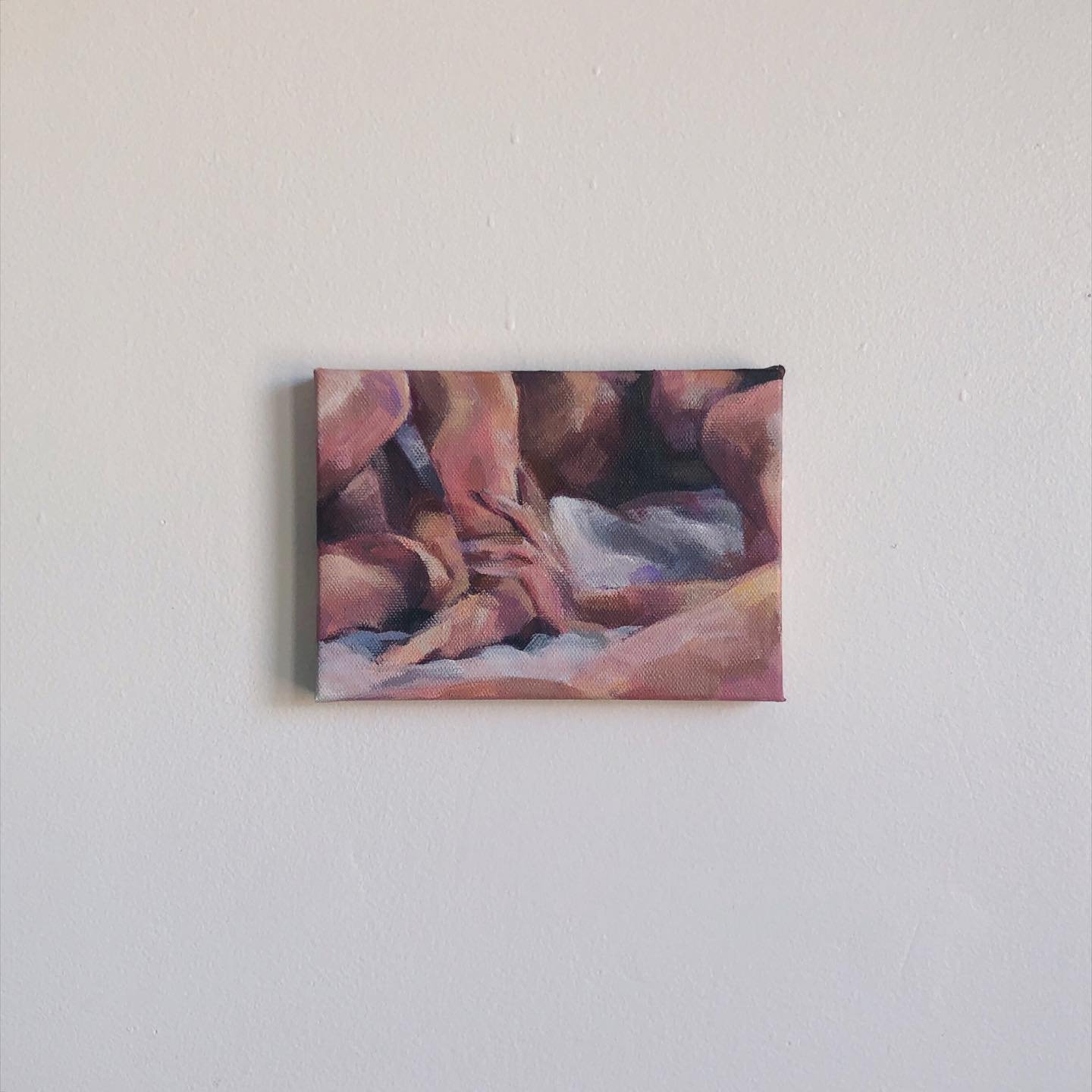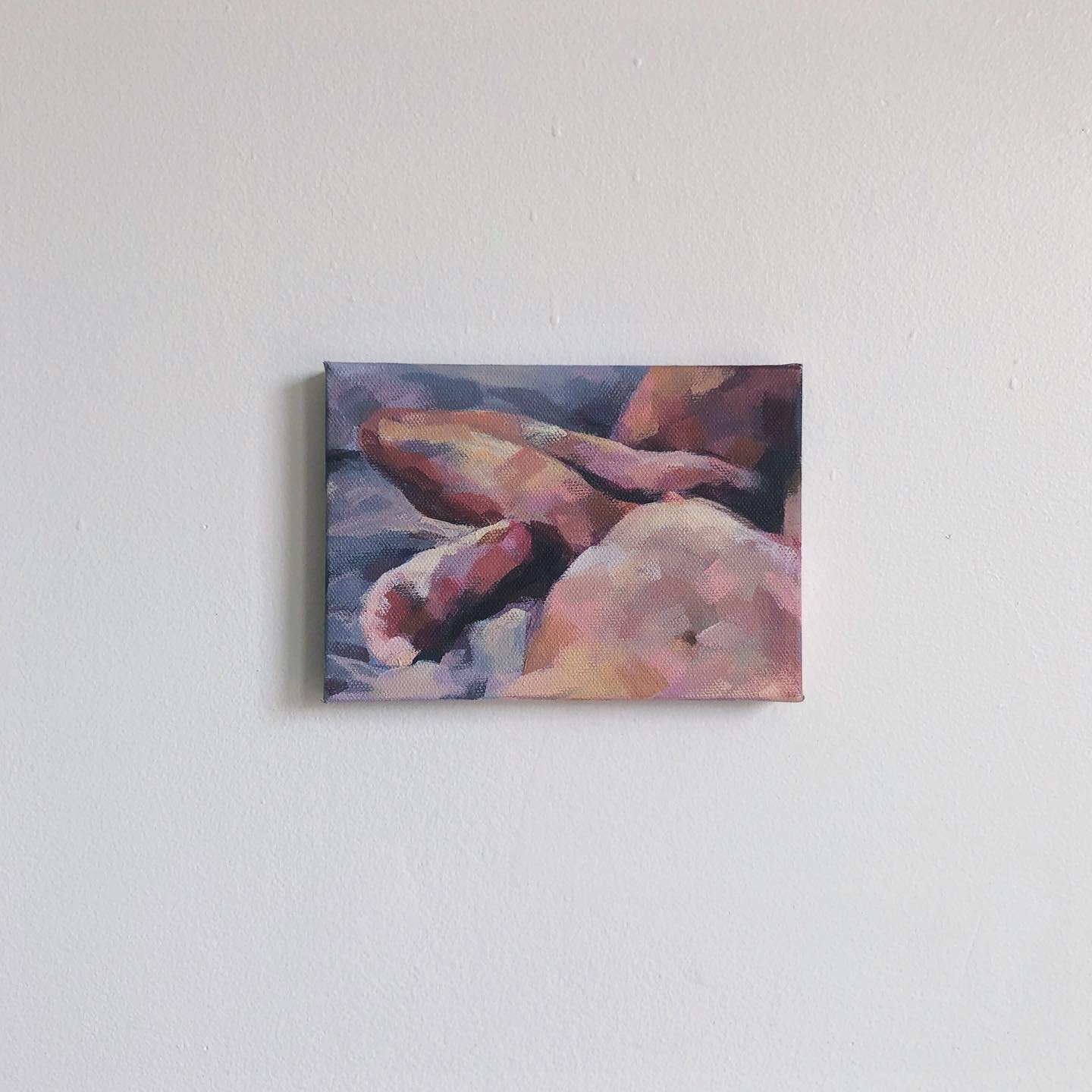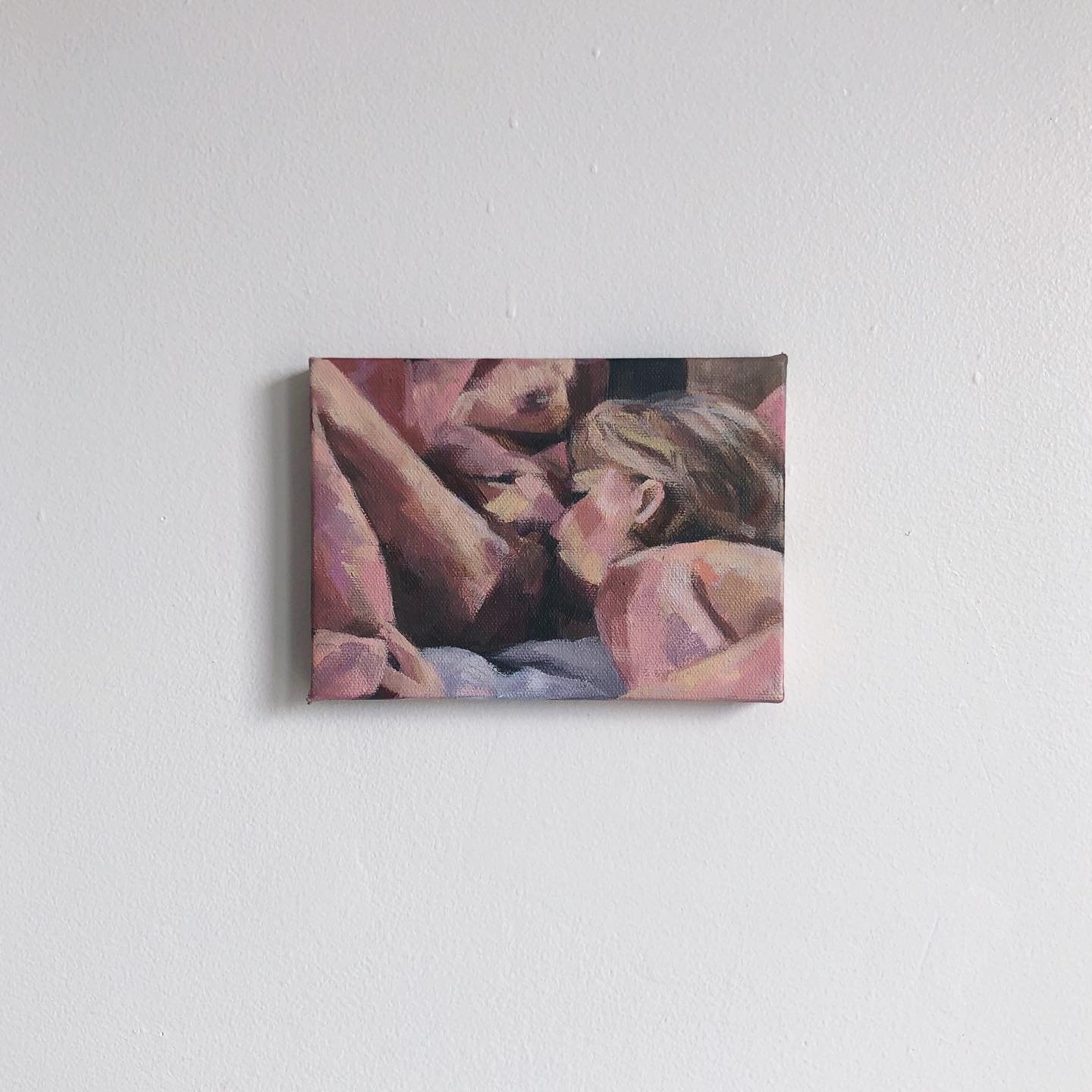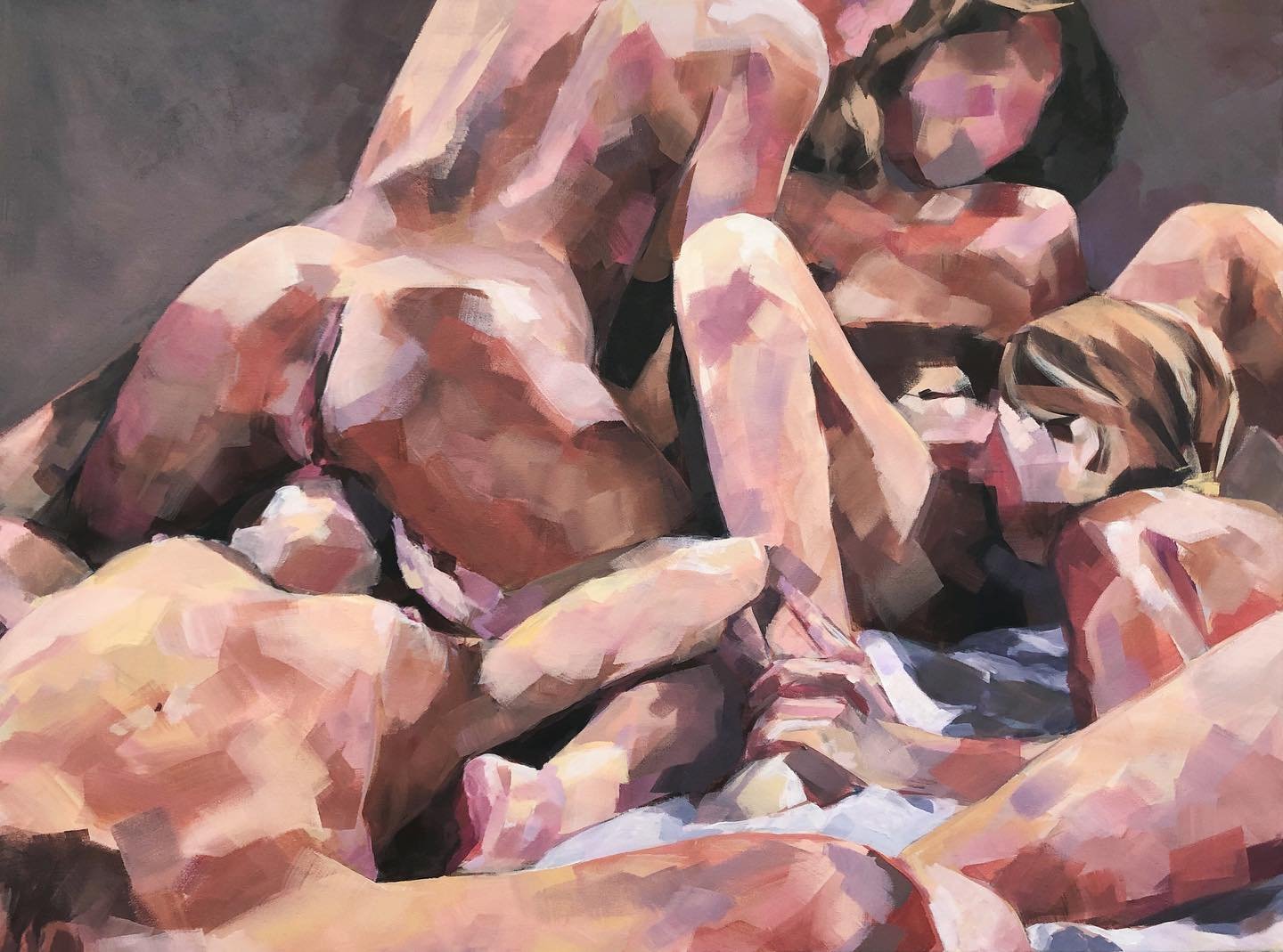New Hero: Xixi Wang
AURORE sat down with Xixi Wang, founder of @asiansforsexpositivity, to discuss the flaws of modern sex education, cultural competency, and sexual empowerment.
What inspired you to get involved in sex education and sex positivity work?
Untitled by Xixi Wang
I’ve always been curious about sex and sexuality. Even though I grew up in a household where topics like sex and dating were swept under the rug, I discovered pornography at a pretty young age. Then, I started exploring themes of intimacy and sensuality through my art during college. But what really inspired me to be involved in sex education was one recent conversation with my mom, where she explained to me why she never had the sex talk with me. It was something she felt unprepared for and she assumed I would learn everything I needed at school. I quickly realized that this is a pretty common experience for Asian American people, and I was motivated to create a sex-positive space, especially for young AAPI folks like myself, where people can feel safe asking questions, finding community, and advocating for change. That’s how Asians For Sex Positivity was born.
Who are some of your major inspirations?
Justine Ang Fonte (@imjustineaf on Instagram) is a huge inspiration to me! They’re a Filipina sex educator based in New York, and I got to meet her on the set of a docuseries that we were both a part of. She’s an expert on topics like porn literacy, dating app culture, and sexual violence prevention. She also wholeheartedly believes in Asians For Sex Positivity, which motivates me to work harder. Also, I’ve recently been inspired by Constance Wu. I attended her book launch event and she talked about finding authentic, instead of perfect, Asian American representation, which spoke to me. I’m currently reading her book Making a Scene, and I highly recommend it!
Being a recent graduate, what do you feel modern sex education lacks?
Cultural competency. Sex and sexuality are highly culture-bound topics, meaning that a person’s cultural background and history influence their attitude around sex. For example in Asian culture, sex is extremely taboo. Asian cultural values emphasize family connections, which include respecting elders and living with parents after marriage. Historically, premarital sex was looked down upon, as well as talking about any aspect of sex, not to mention sexual health. I didn’t know what ‘clitoris’ was in Mandarin until I googled it. So, people aren’t prepared to talk about these topics because they don’t even have the proper language for it. This cultural stigma leads to sexual health disparities, which is why our sex education needs to comprehensively address issues of culture.
What have you found is different about sex education/positivity for Asian people? What cultural boundaries have you run into?
From speaking to my Asian friends and from my own experience as well, I’ve learned that Asian folks generally grow up in sexually-conservative households and are therefore unaccustomed to speaking freely and openly about their sexuality and sexual health. This unfortunately leads to Asian Americans who don’t know how to confide in sexual health professionals and use contraception at lower rates. Meanwhile, there aren’t many sex educators and sexual health professionals who are Asian, so professionals are unaware of the appropriate ways to approach sexual health concerns in our community. This is why cultural competency is so important.
How did attending an HWC affect your thoughts on sex positivity?
Untitled by Xixi Wang
Barnard definitely helped me become more sex-positive. I came from a high school that considered one of my paintings as pornography, but at Barnard, I was unafraid to hang up my paintings of vibrators and vulvas. It was really liberating. I felt like I had a space where I could explore my identities without judgment.
What's your favorite part of running this account and what have you learned?
My favorite part is meeting other sex-positive Asians! Asian folks don’t get much authentic representation in the media, so meeting people who understand me and share similar experiences has been rewarding. I’ve gotten to learn from Asian sex educators who are paving the way for future generations, I’ve talked to Asian CEOs of sex toy companies, and I’ve also bonded with young adults like myself who are on a journey of sexual liberation.
How do you personally tackle sexual shame?
Untitled by Xixi Wang
I grew up in a culture where sex was frowned upon, so I’m still exploring what it means to be Asian and a sexual being. I used to think those two identities were mutually exclusive. Also as someone who’s feminine-presenting, I’ve been taught by society that my pleasure needs to be earned. So, I try to tell myself every day that I am deserving of pleasure.
What makes you feel sexually empowered?
Knowing that I have so much more to learn about my body and my desires makes me feel sexually empowered.
Do you have any media recommendations (books, music, movies, shows, podcasts, etc.)?
During the summer, I set a goal for myself to read at least three books a month, so I have many recommendations! I loved ACE by Angela Chen, Be Not Afraid of Love by Mimi Zhu, and In the Dream House by Carmen Maria Machado. For T.V. shows, I recommend Christiane Amanpour: Sex Around the World (HBO Max), The Principles of Pleasure (Netflix), and any of Ali Wong’s Netflix standup specials. For movies, I discovered Plan B on Hulu, and I think it’s underrated. For podcasts, I recommend Luvbites by Dr. Tara and Sex With Dr. Jess, both hosted by badass Asian sex educators!








